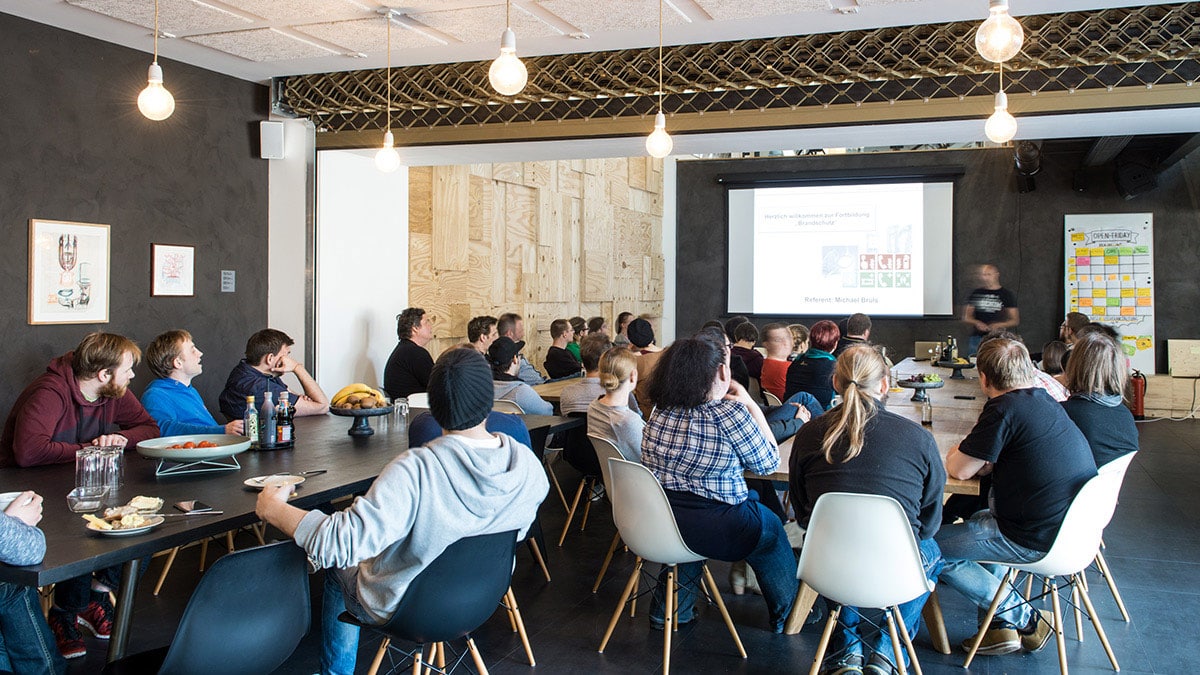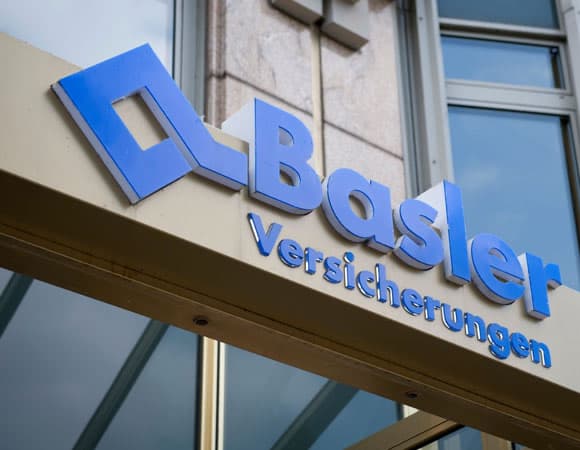What is Open Friday?
Would you like an easy, energizing way of collecting ideas, spreading knowledge and solving problems? We’ve achieved this with „Open Friday“, a bi-weekly Open Space.
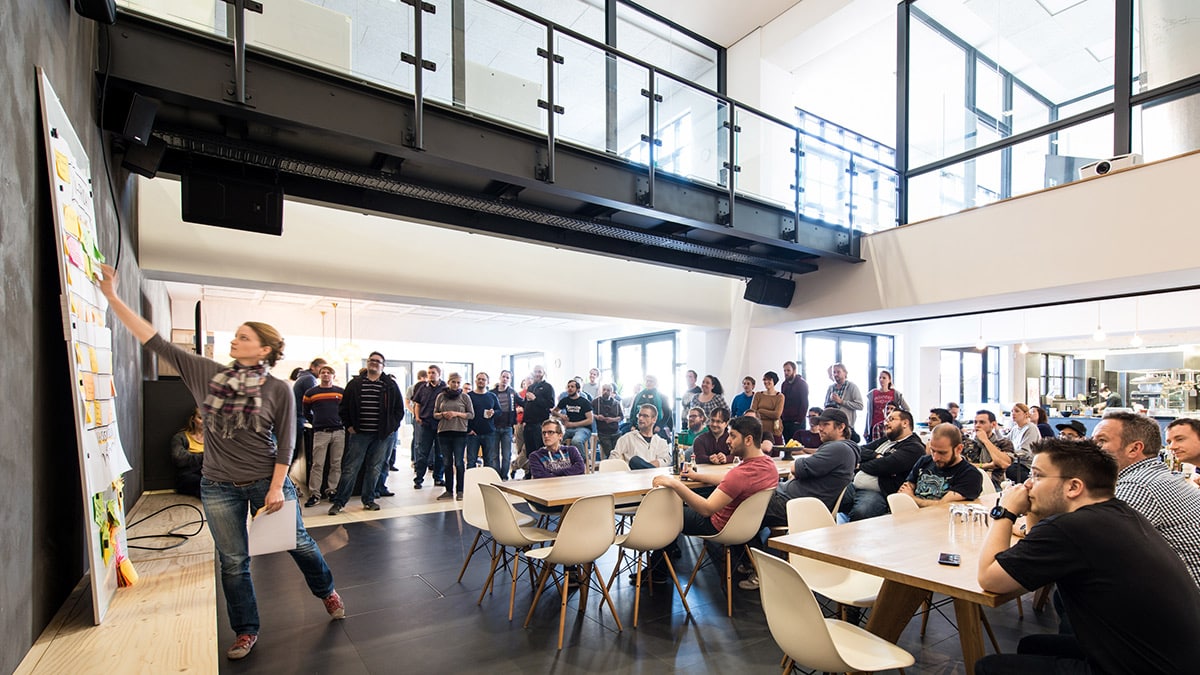
Every other Friday, everyone at sipgate is free to do what they think is most valuable for the company. Additionally we hold an Open Space. It’s our preferred way to spread knowledge, solve problems and collect ideas. It also replaced most of our meetings.
We meet in the morning at 10am for the opening ceremony, followed by five time slots. At 4pm we meet again for the closing ceremony.
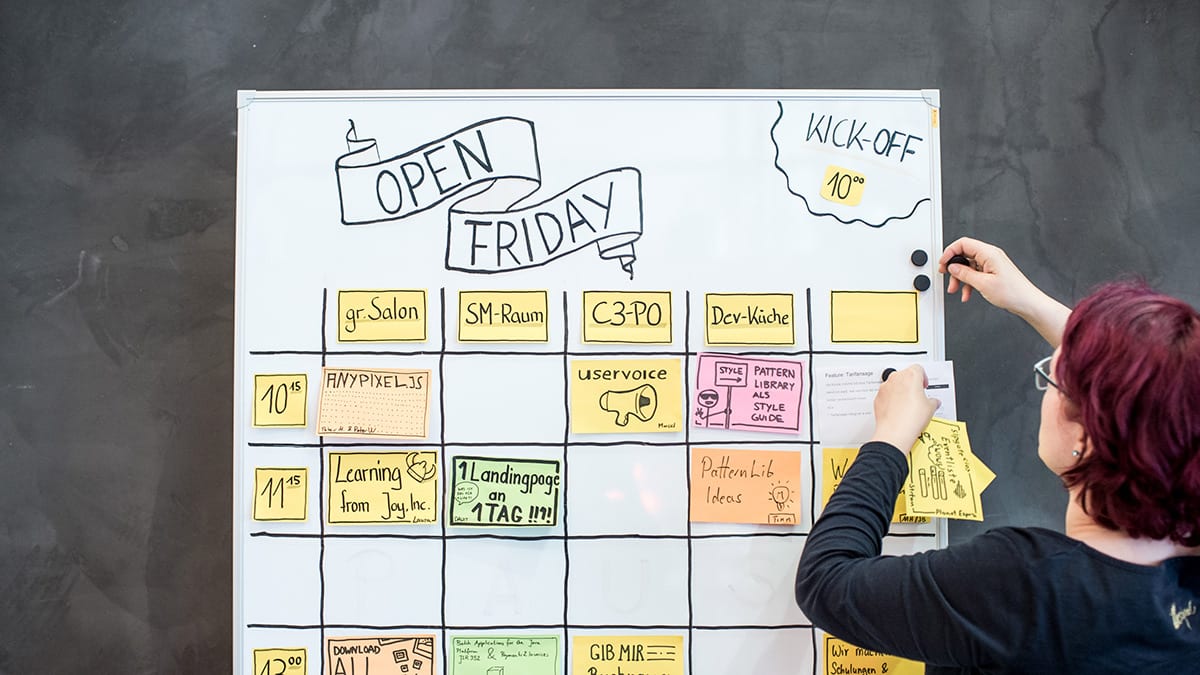
What is an Open Space?
Open Space is a way to spontaneously organize a conference. Participants create a programme for several rooms and timeslots on the spot. Everybody who wants to take part gathers for the opening ceremony. Attendance is 100% voluntary.
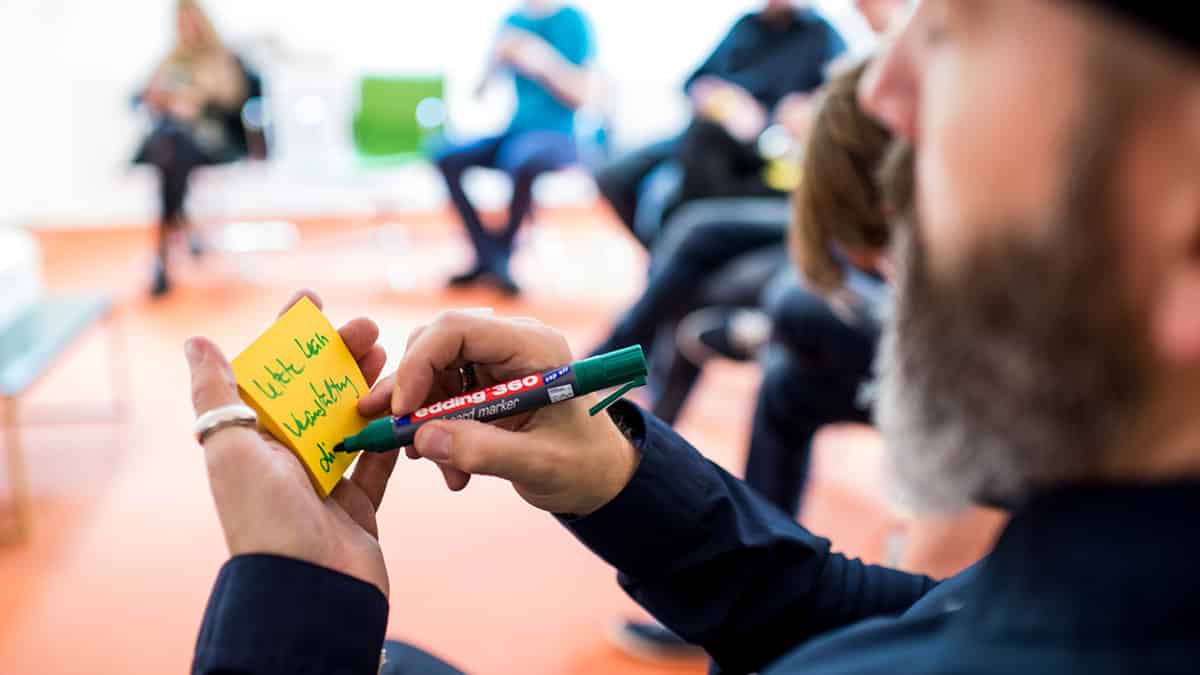
The facilitator reads out the Principles and the Law of Open Space. Then the floor opens for participants that want to host a session. They write their session topic on a sticky note, briefly introduce their topic and then place their session into a time slot and room on a big bulletin board.


